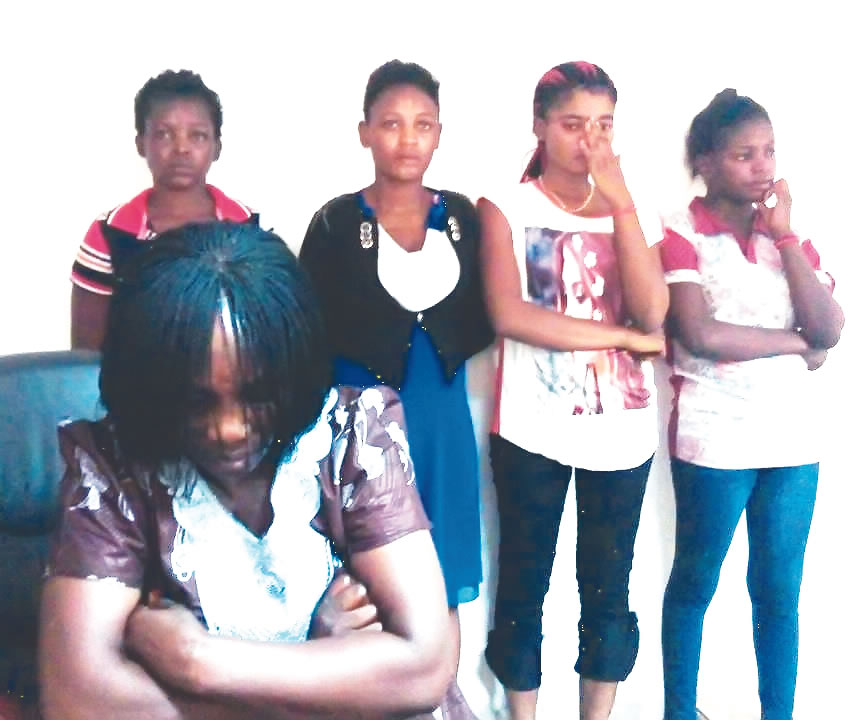THE tragedy that started in the mid 17th century tagged the transatlantic slave trade which saw many Africans being enslaved and transported mainly to the Americas is gradually being reenacted in the 21st century. But this time round, the destinations and the purposes are different. And curiously, there is some level of participation by the victims in the initial discussions precedent to being enslaved even if slavery does not feature unequivocally in the usually surreptitious dialogues. The usual line is that the victims are being assisted to travel to Libya, Mali and so on to seek greener pastures and get engaged in legitimate income-yielding endeavours, which are not readily available in the country. The target candidates usually are girls who already have visible feminine features. The most notorious destination currently is Mali where the girls are reportedly being callously prostituted by their ‘owners’ who bought them like a merchandise for between N210,000 to N240,000 from the Nigerian human merchants.
Many victims were deceived to leave their livelihood in Nigeria for the imaginary greener pastures in Mali. Perhaps a few of them knew they were going to work as prostitutes in Mali, but certainly they did not know they were going to work as sex slaves. Some of the victims were also said to have been abducted from Nigeria as epitomised by those that arrived in school uniforms. Going by the account of the National Agency for the Prohibition of Trafficking in Persons (NAPTIP), there are about 20,000 Nigerian girls in Mali being coerced to ply the illicit trade and the number is said to increase by 50 per day! The sex slave trade is allegedly a well organised enterprise where agents graduate to become principals if the business runs its course without any hitches. According to Julie Okah-Donli, NAPTIP’s Director-General, after being sold, the girls are made to pay back between N1.08 million and N1.2 million within eight months to their madams. After gaining their freedom from their madams, sequel of course to the completion of payment, the girls would now begin to work and make money for themselves through prostitution before graduating to madams on their own. That is the damning progression: from sex slaves to free prostitutes and then barons of the illicit trade.
The downsides of the activities of this criminal ring are legion. Prostitution, apart from being morally reprehensible and criminal, completely robs women of humanity. Yet the worst form of prostitution is sex slavery, especially because it involves not only the dehumanizing aspect of pricing girls like ordinary commodities but also the use of their bodies to satisfy the pecuniary demands of their ‘owners’. That is horrible and demeaning. No human being deserves to go through such experience in order to eke out an existence. That is aside from the fact that the girls constitute health hazards to themselves and to those they get intimate with. Many of them are purveyors of sexually-transmitted diseases as they are allegedly forced to sleep with many men without protection.
There have also been reported cases of some of the girls being sent to the northern part of Mali where they not only offer sex but also become radicalised. Perhaps the most serious of the spin-offs from the shameful conduct of the Nigerian girls and their ‘madams’ in the foreign land is the alleged looming danger of xenophobic attack as Malian women are reportedly getting agitated that Nigerian girls are snatching their men. However, the Malian government officials both at the borders and in the hinterland are allegedly complicit in the illicit trade because it is fetching the government money by way of heavy weekly taxes and compulsory purchase of expensive condoms and other medications by the girls from official sources on a monthly basis. It should be noted nonetheless that the experience of Nigerians in South Africa has shown that the feelings and opinions of the ordinary people of their country of residence are more important than the disposition of the government towards them in determining their safety or otherwise when the chips are down.
It is saddening and embarrassing that Nigerian girls are being sold into slavery very cheaply in the 21st century. But no one should feign ignorance of how the country got to this sorry pass. The situation in the country, now reputed to be the global headquarters of poverty, is sad and it is even more unsettling that current official efforts do not point in the direction of amelioration in the immediate future. It, therefore, should be expected, albeit sadly so, that some citizens may take somewhat precipitate actions to combat what is patently an existential challenge. Truth be told, for as long as the parlous state of the country’s economy remains, for so long will Nigerians continue to leave the country in droves on a daily basis, risking life and limb. Nonetheless, we call on the government to rescue then enslaved Nigerian girls in Mali, and to arrest the gradual slide into anarchy over economic and security issues.
WATCH TOP VIDEOS FROM NIGERIAN TRIBUNE TV
- Let’s Talk About SELF-AWARENESS
- Is Your Confidence Mistaken for Pride? Let’s talk about it
- Is Etiquette About Perfection…Or Just Not Being Rude?
- Top Psychologist Reveal 3 Signs You’re Struggling With Imposter Syndrome
- Do You Pick Up Work-Related Calls at Midnight or Never? Let’s Talk About Boundaries






